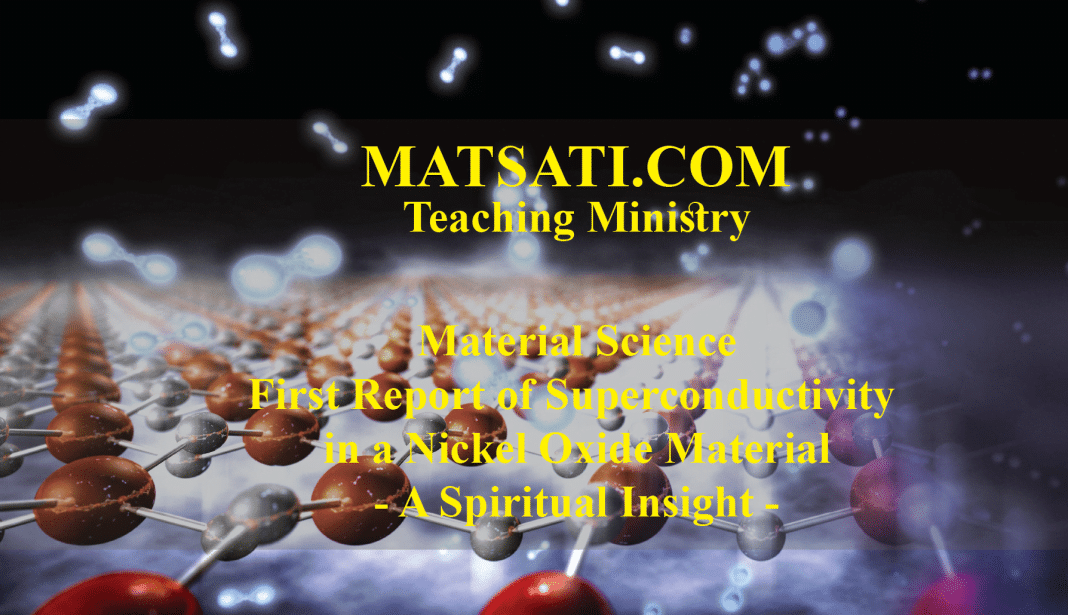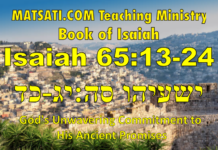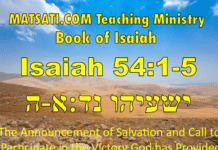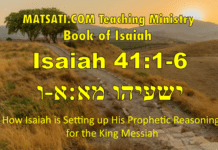Research Scientists at the Department of Energy SLAC National Accelerator Laboratory and Stanford University have reported on the first Nickel oxide material that shows signs of superconductivity. [1] Materials can be divided into two categories based on their ability to conduct electricity. Metals, such as copper and silver, allow electrons to move freely and carry electrical charge. Insulators, such as rubber or wood, hold on to their electrons tightly and prevent electrical current to flow. In the early 20th century physicists developed new laboratory techniques to cool materials to temperatures near absolute zero (–273.15°C or –459.67°F), and began investigating how the ability to conduct electricity changes in such extreme conditions. In some simple elements such as mercury and lead they noticed something remarkable – below a certain temperature these materials could conduct electricity with no resistance. This means one could apply a very large current to a very thin wire and the wire would not burn up. This type of technology (room temperature superconductivity) has many applications and would be quite valuable leading to many types of technological advancements.
The research being conducted into room temperature superconductivity is leading researchers to investigate different materials. Nickelate is the first in a potentially new family of unconventional superconductors that are very similar to the copper oxides that were discovered back in 1986. The realization of these materials could revolutionize electronic devices, power transmission, and other technologies. Researchers started with a perovskite thin-film.
A perovskite is any material with the same type of crystal structure as calcium titanium oxide (CaTiO3), called the perovskite structure. Perovskites take their name from the mineral, which was first discovered in the Ural mountains of Russia by Gustav Rose in 1839 and is named after Russian mineralogist L. A. Perovski (1792–1856). The general chemical formula for perovskite compounds is ABX3, where ‘A’ and ‘B’ are two cations of very different sizes, and X is an anion that bonds to both. The ‘A’ atoms are larger than the ‘B’ atoms. The ideal cubic structure has the B cation in 6-fold coordination, surrounded by an octahedron of anions, and the A cation in 12-fold cuboctahedral coordination. The relative ion size requirements for stability of the cubic structure are quite stringent, so slight buckling and distortion can produce several lower-symmetry distorted versions, in which the coordination numbers of A cations, B cations or both are reduced.
The perovskite that was created by researchers was unique having a double-pyramid atomic structure that contains neodymium, nickel, and oxygen. The perovskite was then doped with strontium. Doping the neodymium-nickel perovskite with strontium led to the creation of vacant electron “holes” at the nickel atoms. This made the material unstable. The researchers struggled to create a thin film of this material taking a year to refine the crystal growth process. When the material was made, it was cut into pieces, wrapped in aluminum foil, and sealed in a test tube with a chemical to leach oxygen atoms from the surface of the perovskite layer. The removal of oxygen atoms led to a new atomic structure, a strontium doped nickelate. Testing revealed the nickelate perovskite material was superconducting in the temperature range of 9-15 kelvins, which is incredible cold. This however has led to a new material at an early stage of work that is quite fascinating. Further work will involve doping the material with different transition metals to see how this affects the superconductivity across the range of temperatures. In addition, further studies will be conducted to understand the materials magnetic structure and its relationship with superconductivity.
References
- Danfeng Li et al, Superconductivity in an infinite-layer nickelate, Nature volume 572, pages 624–627 (2019). DOI: 10.1038/s41586-019-1496-5 (http://dx.doi.org/10.1038/s41586-019-1496-5)
The Spiritual insight that we receive from this type of research may be related to something new from something old. In the Applied Material Sciences, one uses basic knowledge of chemistry and physics to manufacture a material that has unique properties for the specific task it is designed for, just as we understand how this research on superconductivity could revolutionize electronic devices, power transmission, and other technologies, the Lord God Almighty, when he takes who we are and makes something new (a new creation), we can expect something spectacular that will change not just our lives, but the lives of all of those around us! The Scriptures states that we are to “walk in the instruction (Torah) of the Lord” (Tehillim / Psalms 119:1, אַשְׁרֵי תְמִימֵי-דָרֶךְ הַהֹלְכִים בְּתוֹרַת יְהֹוָה) meaning that we are to submit our lives to walking according to the instruction of God. This enables us to walk humbly with God. The instruction of God leads to repentance and turning from sin. It is at this time of the year that marks the month of Elul which is the beginning of a 40 day season of repentance which is given by the rabbis in preparation for the High Holidays. This year the first of Elul is September 1, 5779 (2019). When we think upon this concept of Teshuvah (Repentance) what exactly are we seeking from God? We are seeking forgiveness, and most importantly, help to turn from our sins, to turn towards God’s ways of righteousness, holiness, and truth! In 1 Kings 18:21, the prophet Elijah said “How long will you go limping between two different opinions? If the LORD is God, follow him; but if Baal, then follow him.” Now Paul wrote according to 1 Corinthians 10:11 Now these things happened to them as an example, and they were written for our instruction, upon whom the ends of the ages have come. (NASB) and so we consider what is written in the Tanach these things happened in the lives of these people we read about in the Torah, Prophets, and Writings, to serve as a warning for us. Basically, we are to make up our minds and turn towards the Lord. What is more important than a relationship with the Lord God of Israel? The Torah reading for this week is from Parashat Shoftim addresses this issue of being wholehearted (תָּמִים , tamim, innocence) with the Lord our God. (Devarim / Deuteronomy 18:13 יג תָּמִים תִּהְיֶה עִם יְהוָֹה אֱלֹהֶיךָ You shall be wholehearted with the Lord your God.) Note how the previous verses, Devarim / Deuteronomy 18:9 (ט כִּי אַתָּה בָּא אֶל-הָאָרֶץ אֲשֶׁר-יְהוָֹה אֱלֹהֶיךָ נֹתֵן לָךְ לֹא-תִלְמַד לַעֲשֹוֹת כְּתוֹעֲבֹת הַגּוֹיִם הָהֵם When you enter the land the LORD your God is giving you, do not learn to imitate the detestable ways of the nations there. NIV) reveal to us if God’s words were obeyed it would eliminate a lot of problems in our walk before God to not learn the ways of the nations so as to imitate their detestable ways (i.e. LGBT, murderous abortion, etc). Therefore the study and practice of the Torah helps us to become tamim תָּמִים, (innocent of heart, wholehearted, resolute), and committed to God. Organizing our lives according to God’s truth also makes us happy (i.e., in Hebrew the word me’ushar: מְאֻשָּׁר, is derived from the root verb ashar that means to “walk straight”). As we walk in the truth of God, we begin to experience inner peace and a sense of abiding joy. In Parashat Shoftim we read of the imperative to create courts of law and elect officers to enforce the Law. According to Devarim / Deuteronomy 16:18, the Torah was careful to write אֶת-הָעָם, to instruct us that two courts should not apply different yardsticks but that the whole people must be judged according to a uniform system of laws. (Or HaChaim on Deuteronomy 16:18 Part 6) This is paralleled to our lives as pertaining to both the Jew and the Gentile who joins with Israel, we do not keep separate laws, there is only one law! The text is making it clear that though Israel is comprised of 12 tribes, this does not mean that there are only twelve states, and each has its own set of laws. This may be foreign to us today as this is not always the case, for example in the USA there are both State and Federal laws that one must obey. The Torah is saying here there is only one Law for all! This is how James could write that we are not to be double minded. James says a “double-minded man is unstable in all his ways” (James 1:8). The idea is of a man his flesh wanting to sin, but the Spirit wants righteousness, holiness, and truth. The word translated “double-minded” is dipsuchos (δίψυχος), a word formed from δίς, “twice” and ψυχή, “soul.” This word describes the spiritual condition of having “two souls” each of which want different things at at the same time. This becomes an inner conflict where there are two opposing minds within, one wants to do whatever he wants, the other wants the things of God. This is synonymous to Ezekiel saying “How long will you go limping between two opinions?” Notice how the word translated “limping” is posechim (פּסְחִים), from the same root as Passover (i.e., pasach: פָּסַח). The translation follows asking the question of how long will you pass from one thing to another? The idea of creating something new from something old, we are told in the Messiah we are made a new creation. (2 Corinthians 5:17) This idea of having two souls, opposing desires, the yetzer hara and yetzer hatov, lends to the hebraic understanding of the push-pull relationship that we have with God. He saves us, He promises us eternal life, and because we are in a covenant relationship with God we are called to walk in righteousness, justice, and truth, with the imperative that we are to draw near to God, and he will draw near to us! The solution to having a double mind is given in the Scriptures, that we are to draw near to the Lord (ἐγγίσατε τῷ θεῷ καὶ ἐγγιεῖ ὑμῖν) that is coupled to the call to cleanse your hands, you sinners, and purify your hearts, you double-minded. (James 4:8). Notice how this is both something God does, and something we do as His people. We draw near in the sense of applying God’s word to our lives, we get close enough to Yeshua that we are walking along side of him, literally following in His footsteps. With Yeshua’s request of us to walk in his ways, we are encouraged to come close to the Lord God our Father in heaven according to the way of the Messiah which parallels the Torah based life. Drawing near to our Savior is God’s way of drawing near to us meaning as we draw near to the Messiah the Lord God will draw near to us. The Scriptures describe what we do to draw near to God. We pray and earnestly cry out to the Lord for help. The Lord God Almighty is not indifferent to our suffering and we are promised His presence in our lives by His Holy Spirit dwelling in our hearts. We are also told that prayer includes confession (ὁμολογία) which is the means for repentance in the midst of praying, by agreeing to our condition and need for the Lord. We identify in prayer how we have walked away from the command, fallen short, and seek the Lord’s help to lift us up and restore the relationship that we once had. We all suffer to a limited extent a double mindedness before God when we sin. As we recognize before God and His Messiah the condition of sin in our lives, we must challenge the ideas that attempt to seduce us away from the truth and that have driven us to sin. What are those things that have caused us to have a divided opinion, or what has caused us to have two affections? Paul wrote that this is the imperative on our part, to take “every thought captive” to Messiah and be on guard for subtle appeals to compromise (2 Corinthians 10:5). If we find ourselves in a state of recurring temptation, habitual sin, we must examine the underlying assumptions that are at work in our thinking. Understanding the motivations behind our actions may lead to what we read in Hebrews 4 of the people in the wilderness who were given the gospel message, but perished due to their not mixing faith with that message they received. This means they were not faithful to the Lord according to His word. Hebrews 4:12 describes the power of God’s word, it has the ability to divide soul and spirit, bone and marrow, and most importantly, to discern the intentions of the heart. God’s Word, especially the mitzvot (commandments) of God, when we realize what we are called to do, quickly reveals the intention of our hearts and what we truly believe! We must submit our lives to God’s Word, that means to regularly study the Scriptures for the purpose of reminding ourselves of the reality of how we are to live before a Holy God. Based upon these things, our lives function as the valley of decision, we are constantly forced to look at life as a journey to meet with God, to walk in His presence, to seek Him in prayer, and to watch as He works in our lives. He has promised to never leave nor forsake those who trust in Him. The Psalmist wrote in Tehillim / Psalms 16:8 that the Lord God is “always before us” and so this provides us with a picture of following Him during our lives here on earth. This is the act of practicing our faith (being faithful) by doing what the Torah says, continuing in studying God’s Word, keeping the appointed times, loving one another, enjoying fellowship with other believers, praising God, being charitable, ministering to those in need, and speaking of the Lord God and His Messiah to others. These things that are described in the Torah are the mitzvot (commandments) the Lord had given that Yeshua understood as the “works of love” (John 15:12). Our faith is not an intellectual exercise. We are meant to live out our faith in the world. The more we serve and give, we are told the more we receive. (Matthew 25:14-30) Practicing our faith causes us to be single minded. The rabbis say “Upon three things the world does stand: upon the Torah and upon worship and upon acts of lovingkindness.” (Mishnah Pirkei Avot 1:2) Yeshua said that it is the Lord God Almighty who gives life, “It is the Spirit who gives life; the flesh is of no avail” (John 6:63) salvation is the ultimate goal of God. The salvation that God gives in His Son is not simply freedom from the penalty of sin but freedom from its power. The power of God in our lives is to realize this fact, that the Lord God gives us the ability to overcome, to be willing to forsake sin in our lives and turn towards His ways of life and truth. Paul wrote that godly grief leads to genuine repentance in our lives (2 Corinthians 7:10). Just as we read the prophet Elijah calling out to the people to make up their minds, we must decide whether we will serve the Lord or Baal. We must quit “limping between two different opinions.” You cannot serve two masters. God wants us to make up our minds. He wants us to declare our loyalty in response to His love by the way that we live. Note the immediacy of this call, now is the time and today is the day because we do not have all the time in the world to make up our minds, we are not to continue to swing between opinions, but to make the decision now and believe and live for the Lord! May the Lord God Almighty and His Messiah Yeshua help us all to wholeheartedly draw near and live our lives according to His Word!









